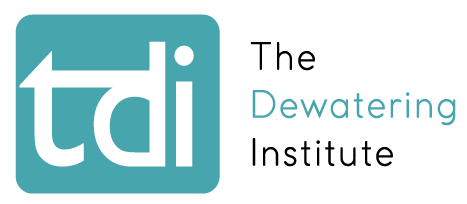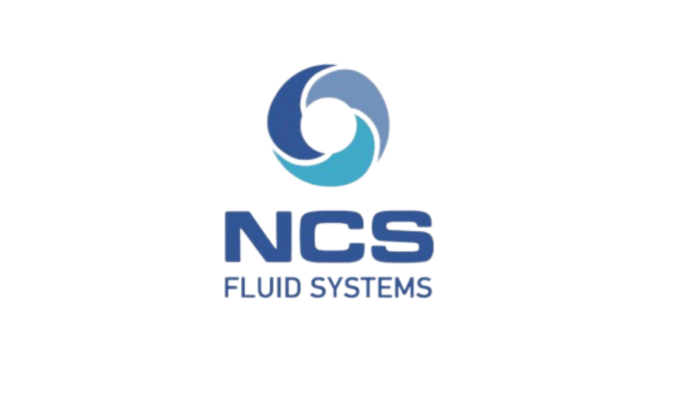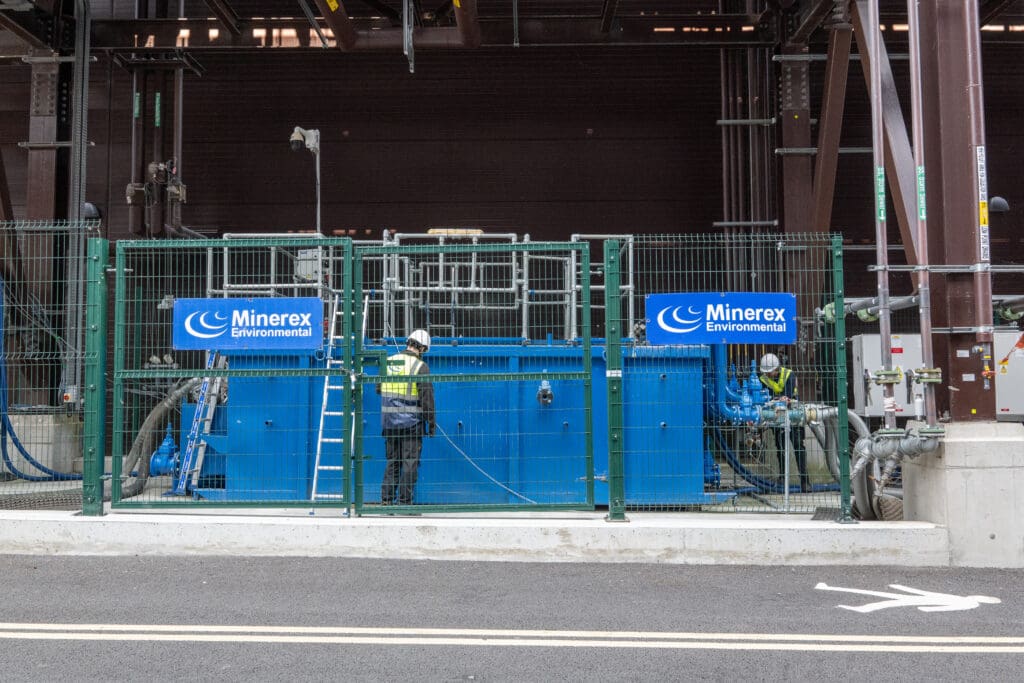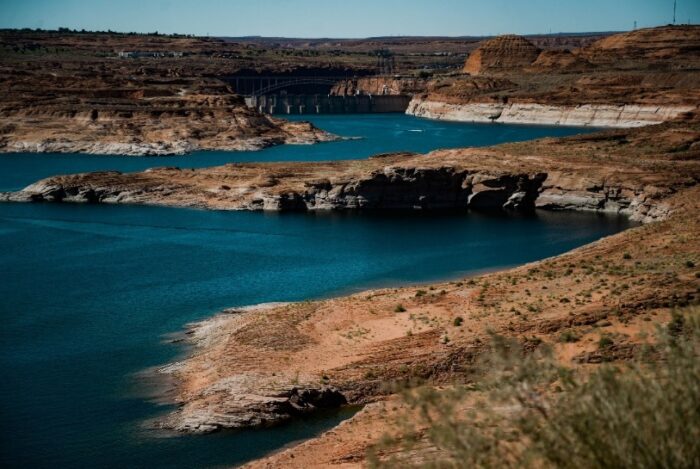As part of the The Dewatering Institute‘s commitment towards knowledge sharing, TDI is developing a series of monthly interviews of industry leaders and professionals from different parts of the world.
This month’s edition feature newly appointed TDI Advisory Council Member Mr. Owen Gilbert, Chief Executive Officer at NCS Fluid Handling Systems Inc. and NCS Environmental Solutions Ltd.
Can you tell us more about your work history and how you got into the dewatering industry?
I began my career as a Draftsman, preparing fabrication and construction drawings. From Draftsman, I moved into a Facility Management position. From there into Operations Management in which I oversaw all fabrication, construction, safety, hiring, and administrative activities. My journey then led me to the position of VP of Sales and Marketing, a pivotal role where I collaborated with the company’s founders during its sale to a US public corporation. Within this capacity, I played a key role in crafting the CIM and establishing a data room. Concurrently, I introduced a novel sales approach rooted in differentiation and ventured into unexplored markets. My contributions extended to mentoring and training sales and estimating personnel, designing an in-house training curriculum, and launching Lunch n’ Learn customer training initiatives. I had the privilege of presenting to over 500 designers, engineers, and SCMP’s over two years plus.
Transitioning from the VP of Sales and Marketing, I assumed the role of VP of Operations, where I was entrusted with the management of four manufacturing facilities. In close collaboration with the Chief Financial Officer, I meticulously formulated and managed annual operational budgets, revenue projections, and sales budgets. A key facet of my tenure involved implementing a sales strategy that heightened customer awareness regarding risk management and mitigation. Furthermore, I assumed responsibility for pivotal capital investment projects. During this period, I actively participated in the selection and subsequent implementation of a new ERP system.
From VP of Operations, I transitioned into the role of President and Chief Operating Officer, reporting directly to the Board of Directors. Within this capacity, I conceived a strategic business plan that concentrated on EBITDA growth, reduction of COGS, and the diminishment of reliance on skilled labour. Organizational changes at the executive level necessitated the development and transition of a new executive team, complete with revised corporate roles. These roles encompassed the Chief Financial Officer, VP of Supply Chain Management, Manager of Human Resources, Manager of Engineering, General Manager of Operations, and General Sales Manager. Alongside the newly formed executive team, I established fresh key performance objectives, emphasizing safety targets, quality assurance benchmarks, internal and external customer satisfaction metrics, gross margin, profitability, and sales targets. In the face of economic challenges, I adeptly steered the organization through necessary adaptations while maintaining a double-digit EBITDA.
Following this, I assumed the role of Chief Operating Officer at a different organization, spearheading cost-reduction initiatives within manufacturing operations, such as 5S+1 Lean, cellular manufacturing, and Lean process training, alongside supply chain optimization efforts. Additionally, I engineered an in-house CRM system to facilitate sales tracking for new opportunities, closing dates, and revenue recognition, providing visibility for scheduling purposes. I proactively conducted forward-looking assessments to address forthcoming business needs, encompassing safety enhancements, quality enhancements, scheduling, training, and the seamless transfer of knowledge in crucial senior positions.
After a productive COO role, I moved into a VP of Operations position for a business that was transitioning from a private corporation to a publicly traded entity. My responsibilities included overseeing the cultural shift, implementing a robust sales strategy that entailed hiring a new sales representative, refining product offerings, and expanding into new regions. Additionally, I introduced a comprehensive tiered training program mirroring an apprenticeship model, enabling technicians to develop core competencies and attain clear career advancement pathways within the organization.
At present, I serve as the President and CEO of NCS Fluid Handling Systems Inc. The inception of NCS Fluid Handling Systems stemmed from a recognition of a pertinent opportunity and a personal interest in the service industry. I was keenly aware of the growing importance of responsible water management, prompting my decision to establish this enterprise. NCS Fluid Handling Systems is committed to providing the highest standard of care and custody related to all water handling services, catering to the Energy, Mining, Industrial, and Municipal Construction sectors. Our specialty services encompass Dewatering, Water Management, Hydro Testing, Filtration, Sediment Control, Well Point Dewatering, River Diversion, Sewer Bypass, and Industrial Water Treatment systems. Our dedication to proper care and custody throughout our fluid handling and water management services underscores our commitment to comprehensive knowledge, swift and secure service, and innovative solutions. We recognize the imperative of safeguarding our natural environment for the benefit of future generations.
What are your favourite projects that you’ve worked on in your career?
Some of my favourite projects throughout my career have involved testing the largest LNG and LPG tanks in North America. I’m equally passionate about responsible water management in industrial settings, recognizing our role as stewards of this vital resource in our industrial applications. It’s a source of pride for me that we’ve played a pivotal role in treating and testing water, as well as managing it, for the two largest hydrotest tanks in North America.
What are some of the biggest challenges you’ve seen in the industry?
The most significant challenge within our industry revolves around knowledge sharing, particularly among newcomers. Ensuring that industry expertise reaches those new to the trade remains a hurdle.
Furthermore, there’s a pressing issue of attracting more individuals to join our field. I strongly advocate for promoting dewatering as a viable career option and emphasizing the substantial career growth opportunities within our industry. To address this, I’ve initiated a program called Tier Training, modelled after the Canadian apprenticeship program. This training aims to establish dewatering and water treatment as fundamental competencies while showcasing the promising career paths available within our industry.
How have you seen the industry develop over the past decades?
Over the past decades, I have witnessed significant transformations within the industry, marked by a remarkable shift towards automation and the integration of technology-driven solutions.
Automation: One of the most prominent trends has been the widespread adoption of automation in production processes and operations. Industries have increasingly turned to robotics and advanced machinery to streamline workflows, improve efficiency, and reduce human error. This has not only boosted productivity but also enhanced safety standards in many sectors.
Online Operational Information: The advent of the internet and the proliferation of digital technologies have allowed companies to access real-time operational data from remote locations. This has revolutionized decision-making processes by providing up-to-the-minute insights into various aspects of a business, from inventory levels to equipment performance.
Telemetry and Telematics: The use of telemetry and telematics systems has become commonplace in the industry. These technologies enable organizations to monitor and manage assets in real-time. Telematics has not only improved asset utilization but also enhanced safety and security.
Remote Operations: The concept of remote operations has gained significant traction, allowing companies to manage critical tasks from a distance.
Overall, the industry’s development over the past decades has been marked by a relentless drive toward efficiency, cost reduction, and improved safety. The integration of automation, online operational information, telemetry, telematics, and remote operations has played a pivotal role in achieving these objectives. As technology continues to advance, it’s likely that we will see even more innovative solutions emerge, further transforming the landscape the industry.
How do you see technology playing part in the industry in the future?
Technology undoubtedly holds the key to the future of the dewatering industry, as it does for all industries. One of the most significant challenges we face in the industry is effective information and data management, with a particular emphasis on information sharing.
In the coming years, I foresee technology playing a pivotal role in addressing this challenge. Advanced data management systems, cloud-based platforms, and digital tools will revolutionize how we collect, store, and share critical information. These technologies will streamline processes, enhance collaboration, and improve decision-making.
Moreover, we can anticipate the integration of cutting-edge technologies such as sensors and predictive analytics into dewatering equipment. This will enable real-time monitoring of systems, predictive maintenance, and more efficient resource allocation.
Additionally, as environmental sustainability becomes increasingly important, technology will empower us to develop and implement greener dewatering solutions. From more efficient water treatment processes to reduced energy consumption, technology will drive innovation in sustainability.
Ultimately, technology’s role in the dewatering industry’s future is not only about increasing efficiency and effectiveness but also about addressing the broader global challenges of water resource management and environmental responsibility.”
Why would you recommend younger generations a career in the dewatering industry?
I would highly recommend younger generations consider a career in the dewatering industry for several compelling reasons.
First and foremost, water is a fundamental necessity for life itself. Our planet’s future depends on responsible water management. Without effective dewatering practices, we risk wasting this precious resource, which is something our world cannot afford.
Furthermore, water has become a valuable commodity, and its efficient management is of utmost importance. As a professional in the dewatering industry, you would be at the forefront of ensuring that this invaluable resource is conserved, treated, and utilized efficiently.
Beyond the environmental and ethical aspects, a career in dewatering offers a pathway to a rewarding and fulfilling profession. The industry is ripe with opportunities for growth and innovation, with a constant demand for skilled individuals who can contribute to sustainable water solutions. So, not only do you have the chance to make a meaningful impact on the world, but you can also enjoy a promising and satisfying career in the process.
In essence, a career in the dewatering industry isn’t just about securing a job; it’s about becoming a steward of one of our planet’s most critical resources and ensuring a sustainable future for generations to come.
What aspects of the industry do you think need improving?
I see two critical areas for improvement within the industry:
- Enhanced Knowledge Sharing, and
- Promoting Industry Careers: We should actively encourage more individuals to explore and pursue careers within the industry.
Why do you think TDI is important for the industry and how it can help the industry develop?
The dewatering industry, on a global scale, should prioritize the sharing and dissemination of information. Certain regions, such as Europe, are pioneering various dewatering technologies, and it’s essential that this knowledge is distributed worldwide. Differences in information accessibility exist both regionally and internationally.
TDI plays a vital role in our industry by serving as a platform for global information sharing. It facilitates industry development through education, the exchange of research and knowledge, the availability of literature and best practice guidelines, and, importantly, by fostering networking opportunities.
What was the greatest encouragement someone gave you regarding business?
“Be a leader, forge your own path, don’t follow the herd, look past the present and look upon the horizon because that’s where were going.”
What is your life motto?
I live by these life motto’s:
“I’ve never set out without the goal of winning, however I am willing to accept the outcome if we brought our best that day.”
“I see solutions and I don’t dwell on obstacles; I embrace opportunities.”









